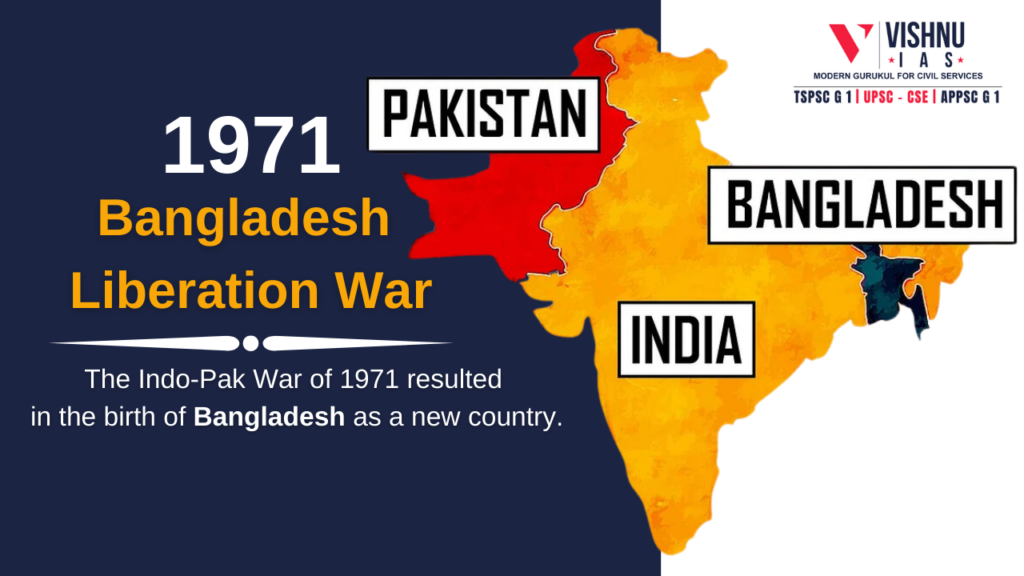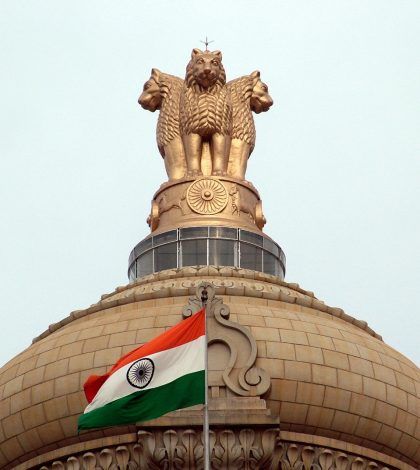1971 War is the bedrock of Dhaka’s ties with India
History of India-Pakistan:
East Pakistanis were popularly known as “Pakistani Bengalis”; to distinguish this region from India’s state of West Bengal (which is also known as “Indian Bengal”). However, soon after Pakistan’s establishment, the Bengalis were under-represented in the national government and ethnic tensions between both groups were said to exist.
The Bengali nationalist leader, Sheikh Mujibur Rehman, announced his six-point program for regional autonomy for East Pakistan.
WHY DID INDIA INTERVENE IN THE WAR FOR THE LIBERATION OF BANGLADESH?
- Strategic Factors
- Problem of migrants
- Economic factors
- Humanitarian reasons
HOW DID THE WAR END?
An Instrument of Surrender was signed between Lieutenant General Jagjit Singh Aurora, the commanding officer of the Indian Eastern Command, and his Pakistani counterpart, Lieutenant-General A.A.K. Niazi.
In 1972, the Shimla Agreement between India and Pakistan was signed, acknowledging the independence of Bangladesh.
In July 2011, Indira Gandhi was awarded the Bangladesh Freedom Award posthumously by the Bangladesh government.
India-Bangladesh Ties
Factors for improvement in the relationship between India and Bangladesh:
- Personal synergy between leaders: Land Boundary Agreement
- Connectivity: Train links, bus links and Chittagong port
- Economic Growth: Bilateral trade of $14.2 billion in 2022-23.
- Strategic Importance: Terrorist outfits and military exercises
- Bangladesh as coordinator in rejuvenating SAARC and setting up BBIN corridor
- India’s soft power in Bangladesh: Bengali Language, Medical tourism etc.
Conclusion:
The Indo-Bangladesh ties are strengthened by a common culture and mutual support to each other. This has been further enforced by the personal synergy between the current leadership in both countries. The prominent disputes have been addressed to the satisfaction of both countries and others are under discussion.
However, there is a need to develop understanding and tolerance towards each other’s foreign policy decisions till the time they are mutually sensitive of each other’s core concerns, while working in the areas of mutual interest by taking partner countries on board.


